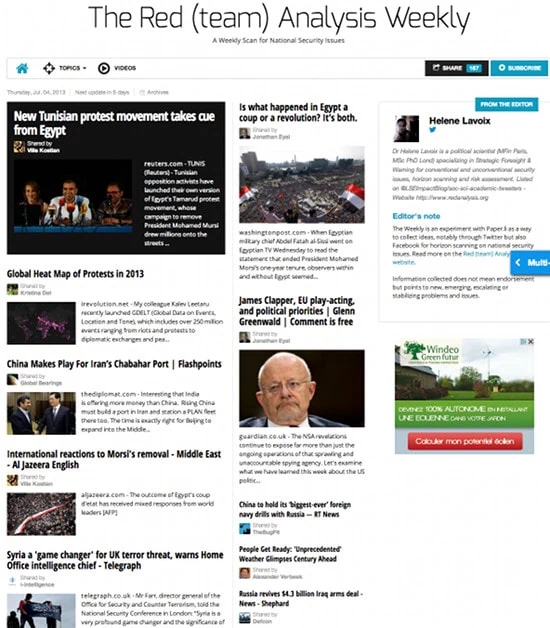Egypt: a complete game-changer – The events that have been taking place in Egypt as well as the reaction to them illustrate the potential end of a very shallow understanding of democracy since the end of World War II. This shallow understanding of democracy limited it to elections, thus to politician politics, with a complete disregard for all other values and ideals included within democracy and with a complete denial of the complex links existing between regime (democracy for example), state, and ruler (which is currently “the nation”). This shallow understanding went hand in hand with modernization, its materialistic vision of the world and the related corresponding institutions. Egyptians have yesterday put an end to this approach and the flurry of articles wondering if it was a coup – in the meantime completely ignoring, even denying, the successful mobilizing effort of the opposition, the Tamarod movement, the loss of legitimacy faced by the Morsi government and issues related to values, i.e. Islamism, and politics – as well as similar reactions by foreign governments insisting solely on coming elections show the unease and even fear that this novel development ushers. We have started a new phase in the worldwide movement of protest and efforts to find political systems adapted to our present and future that had become obvious in 2010 but could be already perceptible in 2005 and maybe before.
What could be the impacts of this change? As Tunisia shows, we may expect renewed protest movements, worldwide. If they were previously locked into a paralyzing respect for democracy, because of the specific, shallow, understanding of its meaning, they should now find there not only new strength and spirit but also organizing and mobilizing principles. The world that was said to be moved only by modernization and materialism could well be ending with consequences in terms of understanding of events (the worldview or Weltanschaung), of values upheld other than greed and profit, of struggle against all forms of extremism, which were slowly being accepted by the materialistic world, and of changes in the very institutions that supported that world (notably the UN and the Washington Consensus organizations). This also means more polarization to come and potentially more violence, as those who benefitted from the previous world will not see it disappear without fighting. In a related way, alliances and power would be shifting, with impact in geopolitical and geostrategic terms. Last but not least, this might also mean new approaches to climate change.
Click on the image below to read on Paper.Li


